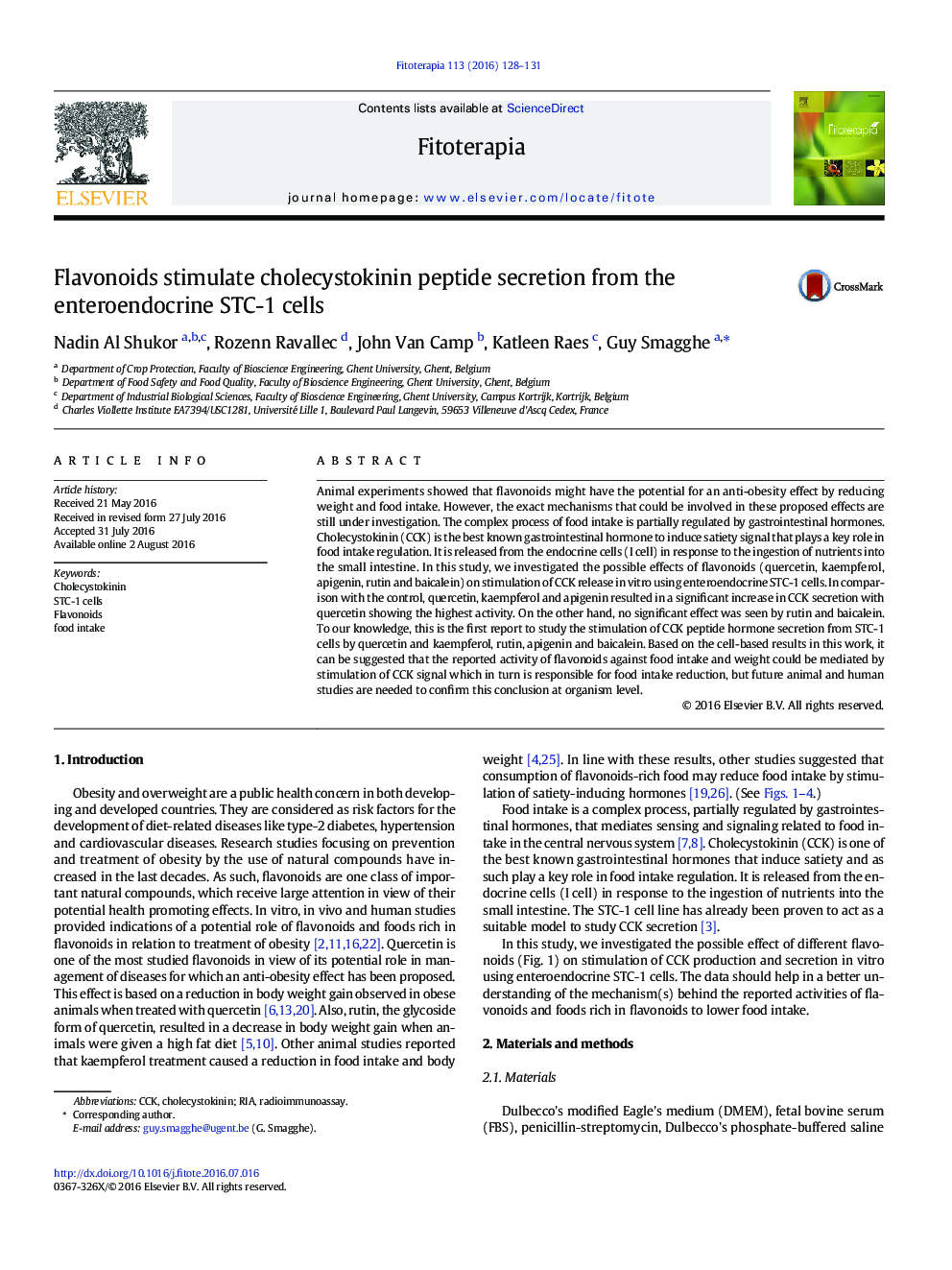| Article ID | Journal | Published Year | Pages | File Type |
|---|---|---|---|---|
| 2538058 | Fitoterapia | 2016 | 4 Pages |
Animal experiments showed that flavonoids might have the potential for an anti-obesity effect by reducing weight and food intake. However, the exact mechanisms that could be involved in these proposed effects are still under investigation. The complex process of food intake is partially regulated by gastrointestinal hormones. Cholecystokinin (CCK) is the best known gastrointestinal hormone to induce satiety signal that plays a key role in food intake regulation. It is released from the endocrine cells (I cell) in response to the ingestion of nutrients into the small intestine. In this study, we investigated the possible effects of flavonoids (quercetin, kaempferol, apigenin, rutin and baicalein) on stimulation of CCK release in vitro using enteroendocrine STC-1 cells. In comparison with the control, quercetin, kaempferol and apigenin resulted in a significant increase in CCK secretion with quercetin showing the highest activity. On the other hand, no significant effect was seen by rutin and baicalein.To our knowledge, this is the first report to study the stimulation of CCK peptide hormone secretion from STC-1 cells by quercetin and kaempferol, rutin, apigenin and baicalein. Based on the cell-based results in this work, it can be suggested that the reported activity of flavonoids against food intake and weight could be mediated by stimulation of CCK signal which in turn is responsible for food intake reduction, but future animal and human studies are needed to confirm this conclusion at organism level.
Graphical abstractFigure optionsDownload full-size imageDownload high-quality image (99 K)Download as PowerPoint slide
